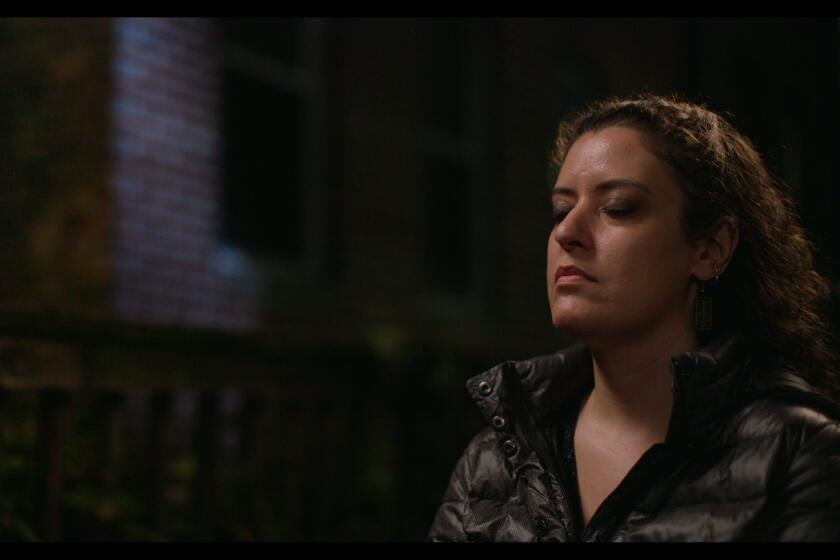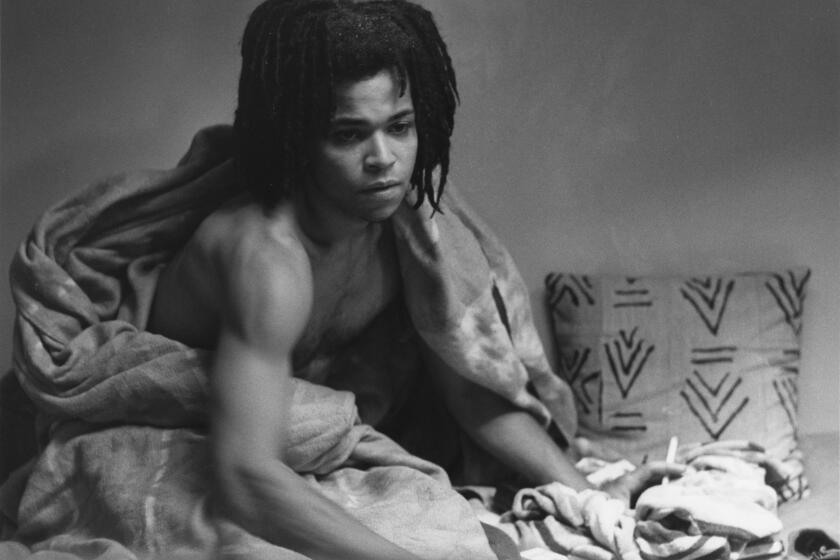The cantankerous man behind the wipers
It’s too bad that Greg Kinnear couldn’t have played Robert Kearns more often in real life.
That thought went through my mind last week while watching Kinnear’s performance in “Flash of Genius,” a new drama based on the story of the cantankerous Detroit engineer who successfully sued Ford and Chrysler for a combined $30 million for infringing on his patent designs for the intermittent windshield wiper.
Kinnear apparently never met Kearns, who died of cancer at age 77 in 2005. But his portrayal in “Flash of Genius” made me think of the few days I spent interviewing Kearns, his ex-wife Phyllis and several of the couple’s six children when I profiled the inventor for the Detroit News in May 1993.
If the real Bob Kearns had possessed a bit more of the sympathetic quality that Kinnear transmits through his portrayal, life might’ve been less torturous for him and his loved ones, who paid an excruciating price for the old man’s decades-long legal crusade. On the other hand, if Kearns had been less uncompromising and driven by his obsession, he wouldn’t have been such a fascinating, though flawed, American folk hero, a kind of Middle American Captain Ahab.
Like Melville’s tragic hero, Kearns was bent on gaining recompense for the wounding insult he felt he had received, no matter the cost to himself or others.
Kearns was a handful for much of his adult life, and not only for the corporate honchos and attorneys foolish enough to tangle with him. As one of the producers of “Flash of Genius,” Michael Lieber, recently acknowledged in a New York Times article, “The real Bob Kearns was 10 times as paranoid, 10 times as difficult as Greg played him.”
I’d say more like 20 times. A prickly bundle of brilliance, wounded ego, profound (some would say fanatical) spiritual faith and implacable energy, Kearns in many ways related better to machines than to human beings. Phyllis Kearns told me when I interviewed her that she used to tell her husband that, “if somebody cut him open he wouldn’t bleed, it would be electronics in there.”
Yet for all his angry bluster, Kearns also projected a basic decency and vulnerability that helped him win over courtrooms and earn many admirers.
Kearns was a Detroit university instructor in the 1960s when he hit upon the technology that would change his life. In the movie, which draws on a John Seabrook profile that ran in the New Yorker, Kearns describes the inspiration for his intermittent wiper in an emotional courtroom scene.
On his wedding night, he tells the jury, a champagne cork popped in his eye, which got him thinking about how the human eyelid operates. Why, he wondered, couldn’t a car wiper have a similar stop-and-go mechanism? When he regained his sight, Kearns tells the jurors, the first thing he saw was Phyllis.
When I asked him about that charming anecdote 15 years ago, Kearns quickly dismissed it as baloney. “Hey, I cold-bloodedly started out to be in business. I set out to manufacture. I invented things that were within my capability.”
And Kearns’ capabilities were considerable.
He took his patented idea to several auto companies but couldn’t interest any of them in a partnership. As the film depicts, one sticking point was that Kearns actually wanted to manufacture the wipers himself. When automakers started churning out new models with intermittent wipers, Kearns cried foul and took his fight to the courts, suing Ford Motor Co. in 1978 and Chrysler Corp. in 1982.
Kinnear does a fine job of conveying Kearns’ peculiar mix of mental acuity, injured pride, mischievous charm and bemusement, which exploded fitfully into white-hot indignation when he spoke about the corporate behemoths he felt were trying to rob him of his due. No one who witnessed it could easily forget the flashes of outraged intelligence that intermittently lighted up Kearns’ anxious blue eyes.
Even so, the movie understates the real-life Kearns’ volatility and vehemence. It also drastically underplays his family’s resentment of Kearns’ bullying, obsessive ways, which eventually shattered his 27-year marriage and caused his children to distance themselves physically from their father. As Tim, Kearns’ second-eldest son, told me when I interviewed him: “We all got to the point where it was him or us. And you always choose yourself.”
Even before they were born, Kearns had assigned jobs to his future offspring in the business he planned to start. Later, he set his family to labor in his basement workshop, assembling circuit boards, running precision drills, filling sales orders and later serving as paralegals. If they ever begged to get off work or pleaded fatigue, Kearns accused them of laziness.
“I didn’t care for my dad a lot at all,” his daughter Maureen told me. “It always seemed normal to me that he was the guy in the basement.”
“Flash of Genius” barely touches on the inventor’s staunch Roman Catholic beliefs. When I met Kearns, he had prevailed against Ford and Chrysler and was preparing to take on General Motors. “This is not my battle,” he told me, “this is the Seventh Commandment” -- Thou shall not steal. Kearns used a $300,000 chunk of his lawsuit settlement to buy and restore the remains of a suburban Detroit church, from the parish where he had grown up idolizing Henry Ford.
At that time, Kearns, who called himself “God’s engineer,” was planning to install the Stations of the Cross on the rural Maryland estate he’d bought with his legal proceeds. He believed that by pursuing his lawsuit he was enacting a kind of pilgrimage, enduring a test of his moral worthiness. The lawsuit was his hairshirt, his holy Grail, his quest for absolution. It was, he once told his daughter Kathleen, “what I was put on Earth to do.”
The lesson to be drawn from Kearns’ remarkable struggle is that it takes a tremendous amount of guts, smarts and perhaps a touch of craziness to stand up to powerful interests in one’s society. Those who do it must be prepared to sacrifice time, health, love, peace of mind or, in Kearns’ case, all of the above.
--
More to Read
Only good movies
Get the Indie Focus newsletter, Mark Olsen's weekly guide to the world of cinema.
You may occasionally receive promotional content from the Los Angeles Times.











